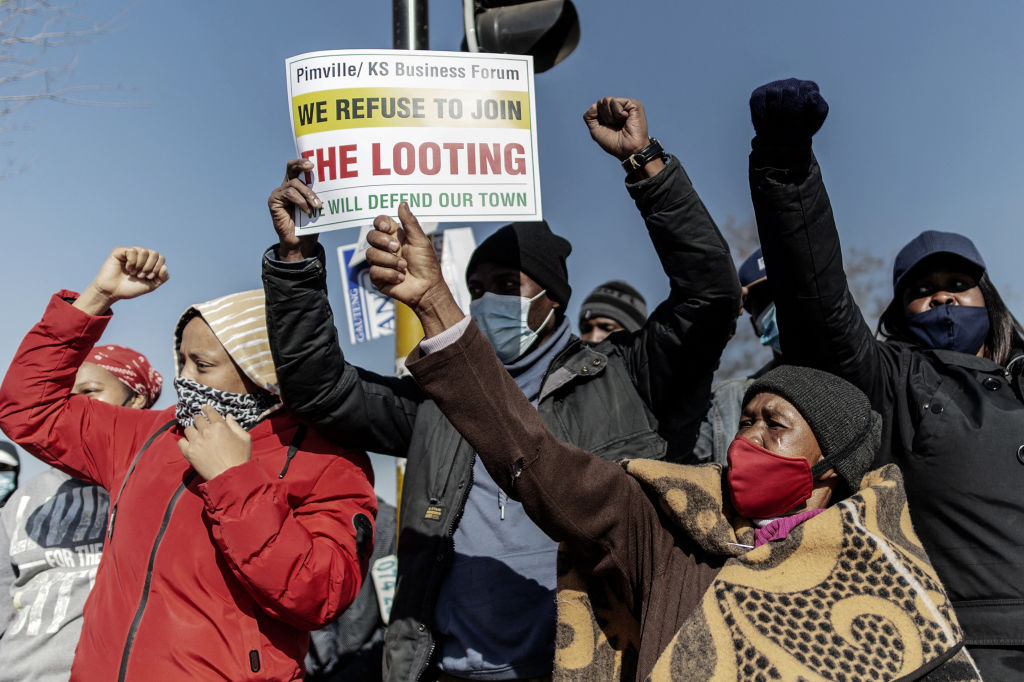The recent arrest of former South Africa president Jacob Zuma, COVID-19, lockdown and extreme social inequality, all triggered South Africa’s protests the worst unrest since the end of the apartheid regime in the 1990s. It spread to more cities on Tuesday, and the death toll has reached 72— according to the Joint National Structure Operations and Intelligence.
How did it start
South Africa’s protests are said to have started by followers of former president Jacob Zuma (2009-2018) in response to his arrest on July 7. The demonstrations turned violent, with hundreds of stores looted. South Africa’s army was deployed to control the situation.
It is estimated that more than 1,200 people were arrested. Most of the confirmed deaths were from trampling or suffocation, according to security forces, but people were also shot dead.
The riots are mainly concentrated in the provinces of KwaZulu-Natal— where Zuma was born and lives— and Gauteng, where Johannesburg is located. Both account for about half of South Africa’s economic output. Many commercial establishments were looted and the main highways blocked.
“Parts of our country have suffered several days and nights of violence, destruction of property and looting that has rarely been seen in the history of our democracy,” said the president, who replaced Zuma.
Zuma’s foundation said on Tuesday that there will be no peace in South Africa until he is released.
“Peace and stability in South Africa is directly linked to the release of President Zuma with immediate effect,” the foundation posted on Twitter.
What is behind the unrest
If South Africa’s protests were started against the arrest of former President Jacob Zuma, it is also true that they are fueled by the economic crisis caused by the pandemic and the 32% unemployment rate— the highest since 2008.
South Africa’s government claims that rioters are taking advantage of the unstable situation.
However, the economic crisis exacerbated by the pandemic may also be behind the population’s uprising, according to Aleix Montana, an Africa analyst at Verisk Maplecroft, a company specializing in global risk analysis.
“Zuma’s arrest was the spark that sparked the protests, but underlying issues such as rising unemployment, widespread inequality and discontent with Covid-19-related restrictions are the powder keg,” Montana said. “ We estimate that the unrest will continue to intensify in the coming days.”
For the senior researcher at the Mapungubwe Institute for Strategic Reflection (MISTRA) Khwezi Mabasa, the current lockdown measures and the lack of local economic policies for social development have restricted economic activities carried out by unemployed and marginalized citizens.
“They are not passive beings waiting for state assistance. They engage in varied forms of livelihood practices, which assist them to eke out a living. Policy solutions that overlook these livelihood practices will perpetuate social conflict in these areas,” he wrote in an Op/Ed published in IOL, a South African media outlet.
As of July 12, only 6.5% of the South African population had received at least one dose of the vaccine, according to data from Oxford University’s website Our World in Data. Only 2.3% were fully immunized.
